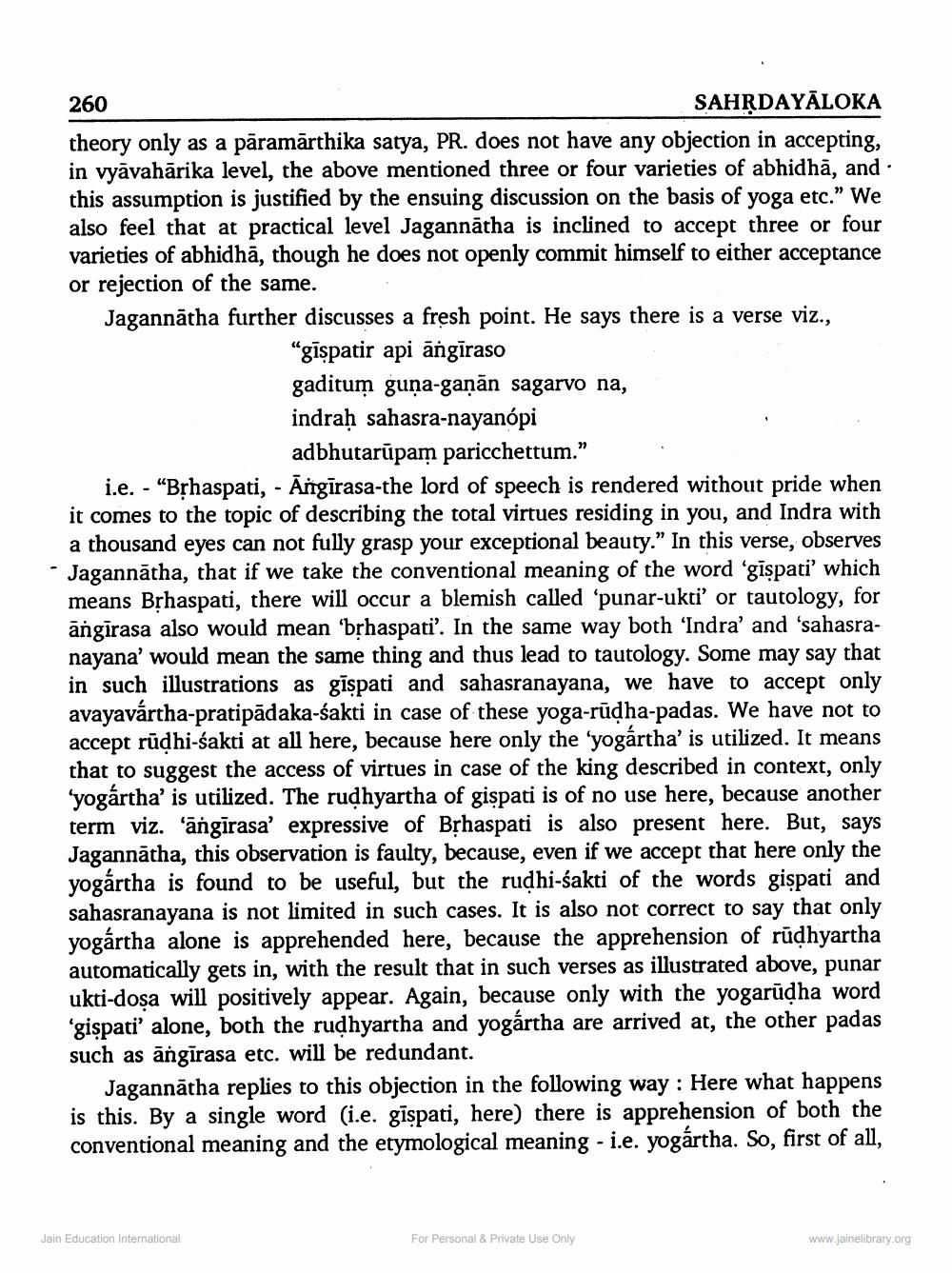________________
260
SAHṚDAYĀLOKA
theory only as a pāramārthika satya, PR. does not have any objection in accepting, in vyāvahārika level, the above mentioned three or four varieties of abhidha, and. this assumption is justified by the ensuing discussion on the basis of yoga etc." We also feel that at practical level Jagannatha is inclined to accept three or four varieties of abhidha, though he does not openly commit himself to either acceptance or rejection of the same.
Jagannatha further discusses a fresh point. He says there is a verse viz.,
"giṣpatir api āngiraso
gaditum guna-gaṇān sagarvo na, indraḥ sahasra-nayanópi
adbhutarupam paricchettum."
i.e. - "Bṛhaspati, - Angīrasa-the lord of speech is rendered without pride when it comes to the topic of describing the total virtues residing in you, and Indra with a thousand eyes can not fully grasp your exceptional beauty." In this verse, observes Jagannatha, that if we take the conventional meaning of the word 'gispati' which means Bṛhaspati, there will occur a blemish called 'punar-ukti' or tautology, for angirasa also would mean 'bṛhaspati'. In the same way both 'Indra' and 'sahasranayana' would mean the same thing and thus lead to tautology. Some may say that in such illustrations as gīṣpati and sahasranayana, we have to accept only avayavártha-pratipādaka-sakti in case of these yoga-rudha-padas. We have not to accept rūḍhi-śakti at all here, because here only the 'yogártha' is utilized. It means that to suggest the access of virtues in case of the king described in context, only 'yogártha' is utilized. The ruḍhyartha of gispati is of no use here, because another term viz. 'āngirasa' expressive of Bṛhaspati is also present here. But, says Jagannatha, this observation is faulty, because, even if we accept that here only the yogártha is found to be useful, but the ruḍhi-śakti of the words gispati and sahasranayana is not limited in such cases. It is also not correct to say that only yogártha alone is apprehended here, because the apprehension of rūḍhyartha automatically gets in, with the result that in such verses as illustrated above, punar ukti-dosa will positively appear. Again, because only with the yogarūḍha word 'gişpati' alone, both the rudhyartha and yogártha are arrived at, the other padas such as angīrasa etc. will be redundant.
Jagannatha replies to this objection in the following way: Here what happens is this. By a single word (i.e. giṣpati, here) there is apprehension of both the conventional meaning and the etymological meaning - i.e. yogártha. So, first of all,
Jain Education International
For Personal & Private Use Only
www.jainelibrary.org




